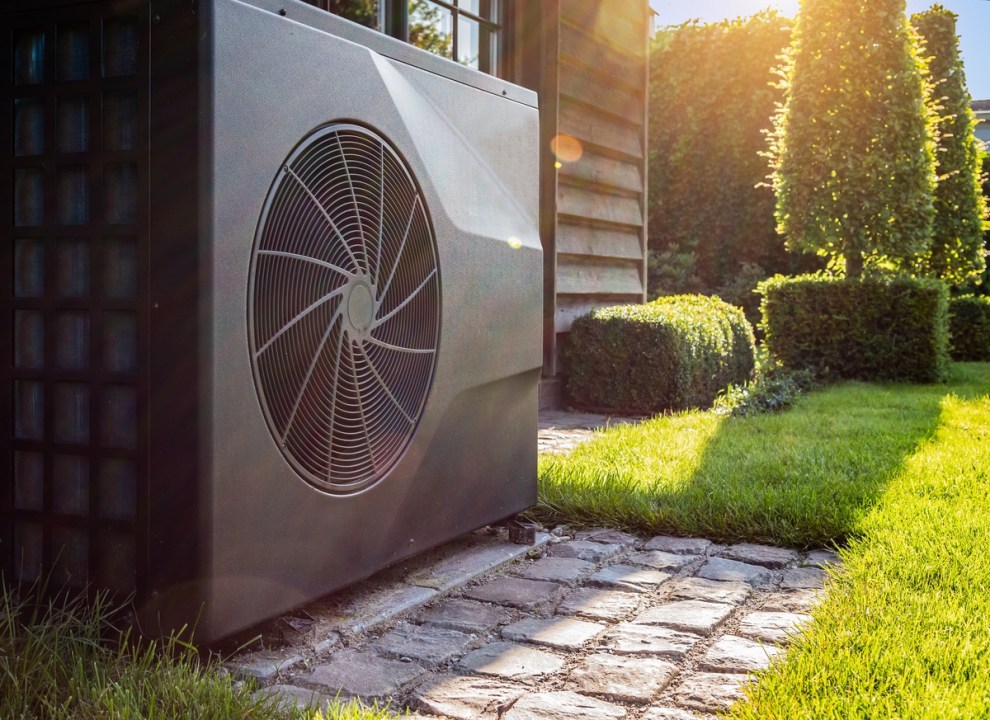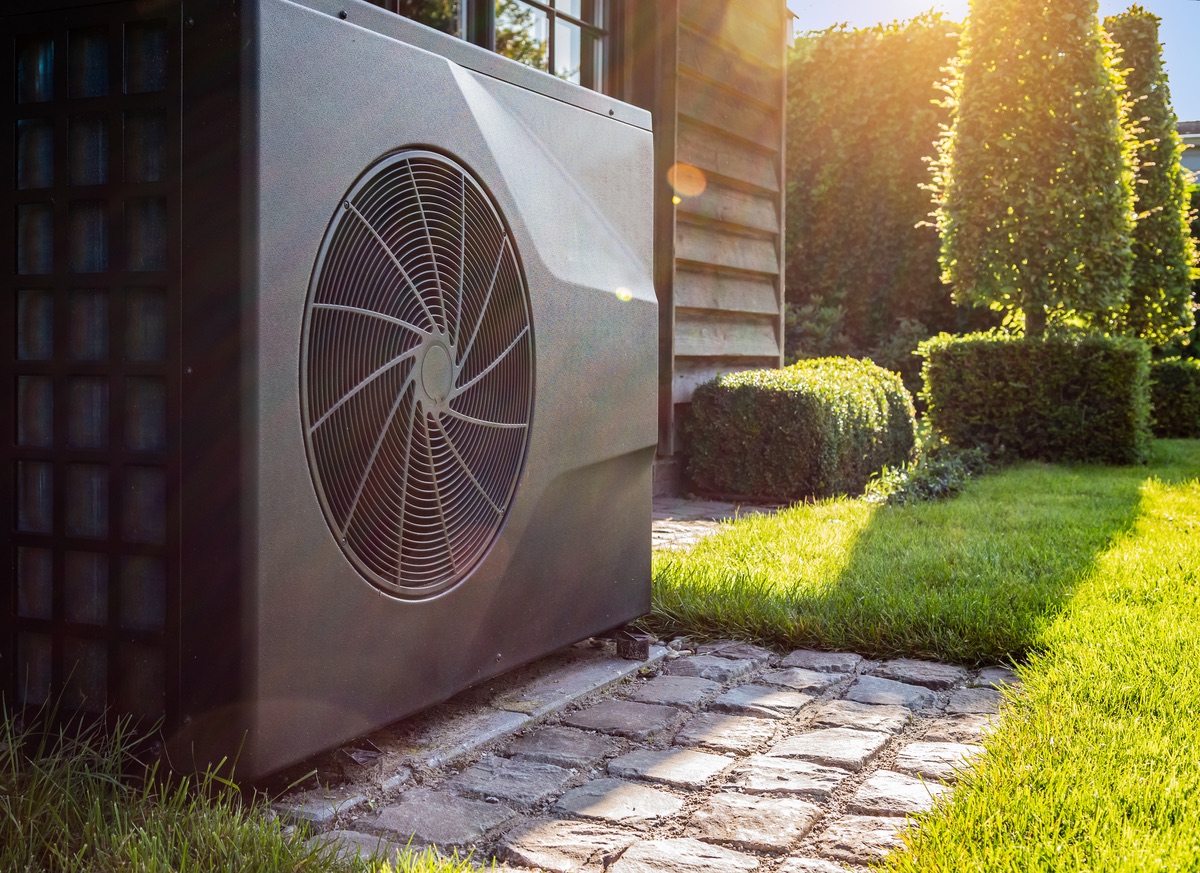In Britain’s battle to cut carbon emissions, the government sees heat pumps as a key weapon. Unveiling the latest energy efficiency plan in March, energy secretary Grant Shapps doubled down on Boris Johnson’s offer of a £5,000 grant for anyone willing to install one. These smart bits of home technology work by transferring thermal energy from the air, ground or water. They are powered by electricity, which can be generated from solar or wind power, providing cheap and fossil fuel-free heating and hot water. So what’s not to like?
The concept is nothing new. In 1856 the Austrian scientist Peter von Rittinger worked out a technique for drying out salt in salt marshes using an early iteration of the heat pump, and in 1951 the Royal Festival Hall in London opened with a water source heat pump fed by the Thames.
Yet despite their obvious attractions, domestic heat pumps remain outliers. According to the European Heat Pump Association there are now around 20 million air and water source heat pumps in operation in Europe, providing heating to about 16 per cent of residential buildings. The other 84 per cent of buildings are heated the old-fashioned way. In the UK, 55,000 heat pumps were fitted in 2021. During the same period, 1.5 million people installed new gas boilers.
Heat pumps became a political hot topic that same year when Johnson, then prime minister, announced he wanted to phase out gas boilers and offered substantial grants to anyone who would replace one with a heat pump. This, he hoped, would result in 600,000 heat pumps being installed every year by 2028. Offers of free money tend to go down well with the public – consider how insane the housing market went during the pandemic stamp duty amnesty. But the silence in response to this £450 million offer has been deafening.
If you drill down into the reality of heat pumps, the idea of a £5,000 cheque from Downing Street starts to lose its appeal
The latest figures from Ofgem show that fewer than 10,000 installations were completed under the scheme between May 2022 and March this year. The reason for this lack of uptake is simple. If you drill down into the reality of heat pumps, the idea of a £5,000 cheque from Downing Street starts to lose its appeal. For a start, a heat pump costs, on average, about £10,000. For an air source model that rises to around £20,000. You can buy a decent, energy efficient combi boiler for about £2,500.
And what ministers seem unable – or unwilling – to grasp is that heat pumps are not simple, plug-and-play options. To start with, you need space. An air source heat pump requires around 10 square feet of outside space – bad luck, flat-owners – plus new pipework to deliver the heat it produces. Homeowners also need space indoors for a heat exchange unit (of about the same size as a normal gas boiler) plus a hot water cylinder (which those with combi boilers can often do without).
Ground source heat pumps are even greedier, space-wise. The most cost-effective system involves digging shallow trenches in the garden. These need to be around 100 metres long and up to two metres deep, meaning that anyone with a less-than-sprawling garden can forget it. And even those with plenty of space can come up against obstacles – Blur singer Damon Albarn has reportedly received complaints from parish councillors that the sight and sound of the two ‘intrusive’ heat pumps outside his Devon farmhouse could disturb walkers on the nearby footpath in an Area of Outstanding Natural Beauty.
If space is not an issue, your existing radiators could be. Heat pumps have far lower flow temperatures than boilers, which means they require a much larger radiator surface area than a normal boiler does. This means either supersizing your radiators (impractical, ugly) or installing underfloor heating (expensive, disruptive). And of course there is no point producing lots of lovely, clean heat if your house isn’t well insulated. Think not just loft insulation but also wall and floor insulation, and double, ideally triple, glazing.
Collectively these practicalities mean that the only time installing a heat pump is going to be feasible is during a major renovation of a substantial house or a self-build – which means the only real beneficiaries of this flagship policy are well-off home improvers, grand designers and property developers. Ordinary, regular people living in ordinary, regular homes don’t have a hope.
What ministers seem unable to grasp is that heat pumps are not simple, plug-and-play options. To start with, you need space
The problems don’t even end with cost and space. Buying a heat pump isn’t like choosing a new phone. Professional advice on the type of system you should have, its size, how it should be installed, where, how to set it up and work it and how to maintain it is alarmingly patchy. If you want a heat pump you’re going to have to be prepared to brush up your GCSE physics and get your head around the technology because you are going to need to ask the right questions and work a lot of this out for yourself. Any errors will be expensive; while many homeowners adore their heat pumps there have certainly been cases of amateurs lumbered with bulky, expensive and inefficient heat pumps for want of good advice.
So why is the government still so sure that heat pumps are the great white hope in our battle against carbon emissions? Perhaps the answer can be found at the school gates, where many affluent mums ditched their previous status symbol of choice – a four-wheel drive – in favour of earning brownie points on the middle-class dinner party circuit with tales of how much they love their Kia e-Niros.
Politicians also love to burnish their green credentials, and the government’s constant pressure to ditch gas boilers and embrace heat pumps feels like it stems largely from a desire to prove themselves to be at the cutting edge when it comes to green technology. Promoting loft insulation – which is lacking in almost a third of Britain’s 25 million homes with lofts, according to the Department for Business, Energy and Industrial Strategy, and is cheap and easy to install – is a far less sexy rallying cry.
But beware of ministers bearing gifts. A chronic lack of policy thinking-through puts anybody idealistic enough to attempt to harness heat pump technology at risk of being left – literally – out in the cold.







Comments